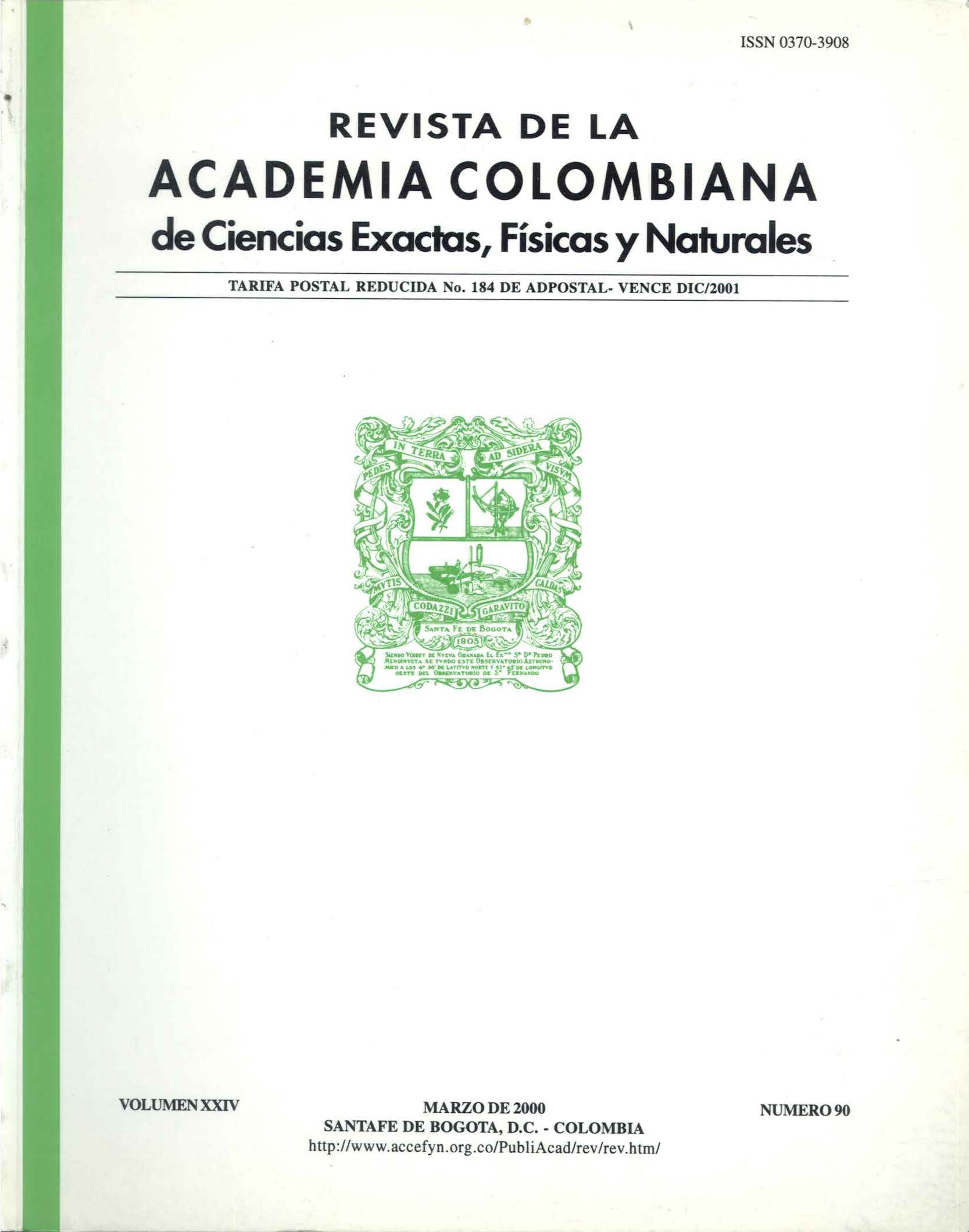Abstract
Sphacele salviae Briq, is a poorly known source of a traditional medicine drug. The identification assays and pharmaceutical data are provided. A confusion between authentic sage (Salvia officinalis L.) and Sphacele salviae was observed. Diagnoses of both based upon epidermal appendages are given.
Keywords
References
Alarcon-Aguilara, F.J., Roman-Ramos, R., Pérez-Gutíerrez, S., Aguilar-C ontreras, A., Contreras-Weber, C.C., & Flores-Sáenz, J.L. 1998. Study of the anti-hyperglycemic effect of plants used as antidiabetics. J. Ethnopharmacol. 61(2):101-10.
Bell, E.A. 1981. The physiological role(s ) of secondary (natural) products. In Stumpf, P.K. & Conn, E.E. (eds.). The biochemistry of plants; a comprehensive treatise .vol.7. Secondary Plant Products, New York, Academic Press, 1-19.
Croteau, R., Felton, M., Karp, F, & Kjonaas, R. 1981. Relationship of camphor biosynthesis to leaf development in sage (Salvia officinalis). PI. physiol. 67: 820-824.
Dimayuga, R. E., Garcia, S.K., Nielsen, P. H., & Christophersen, C. 1991. Traditional medicine of Baja California Sur (Mexico). III. Carnoso!: a diterpene antibiotic from Lepechinia hastata. J. Ethnophannacol 31(1): 43-48.
Epling, C. 1934. The Labiatae of Chile. Revista Universitaria 22(1): 167-194.
Gupta, M. L. & Bhambie, S. 1980. Foliar appendages in certain species of Salvia (Studies in Lamiaceae VI). Folia Geobot. Phytotax. 15: 95-100.
Hager, H. 1885. Botanischer Unterricht in 160 Lectionen. Für angehende Pharmaceuten und studirende Mediciner. Verlag von Julius Springer, Berlin.
Hegnauer, R. 1966. Chemotaxonomie der Pflanzen vol. 4, Birkhauser Verlag, Stuttgart.
Lynch, S.P. & Webster, G. L. 1975. A new technique of preparing polleo for scanning electron microscopy Grana 15: 12 7-136.
Montes, M. & Wilkomirsky, T. 1984. Medicina tradicional chilena. Real Acad. Fann 50: 637-658.
Pachaly, P. 1990. Deutsche Apotheker Zeitung. 130:169. cit a través de Wichtl (1984).
Román-Ramos R., Flores-Sáenz J.L., Partida-Hernández, G., Lara Lemus, A., & Alarcón-Aguilar, F. 1991. Experimental study of the hypoglycemic effect of sorne antidiabetic plants. Arch. Invest. Med. (Mex.) 22(1); 87-93.
Scbnepf, E. 1972. Tubulares endoplasmatisches Reticulum in Drüsen mit lipophilen Ausscheidungen von Ficus, Ledum, Salvia. Biochem. Physiol. Pflanz. 163: 113-357.
Serrato-Valenti, G., Comara, A. B., & Ciarallo, G. 1997. Structural and histochemical investigation of the glandular trichomes of Salvia aurea L. leaves, and chemical analysis of essential oil. Annals of Botany 79: 329·336.
Silva, M. 1968. Triterpenic constituents of Lepechinia chamae dryoides. J. Pharm. Sci. 57(5): 864-5.
Urbina, P. A., Rodríguez, R. R., Sepúlveda, S. D., Montes, G.M., Pastene, N. E. & Sanhueza, V. R. 2000. Tricomas epidérmi· cos de Sphacele salviae epidermic trichomes de Sphacele sa/viae. Gayana (Bot.) 71-72.
Venkatachalam, K. V., Kjonaas, R. & Croteau, R. 1984. Development and essential oil content of secretory glands of sage (Salvia ofificinalis). PI. Physiol. 74: 148-150.
Verzár.Petri, G. & Then, M. 1975. The study of localization of volatile oil in the different parts of Salvia sclarea L. and Salvia ojficinalis L. by applying 214C sodium-acetate. Acta Botánica Academiae Scientiarum Hungaricae 21(1-2): 189-205.
Walkowiak, A. M., Simonetti, J. A., Serey l., Jordan, M., Arranz, R. & G Montenegro. 1984. Defensive patterns in shrubs of central Chile; a common strategy? Acta Oecologica Oecol plant. 15(19): 191-199
Werker, E., Ravid, U., & Putievsky, E. 1985. Structure of glandular hairs and identification of the main components of their secreted material in sorne species of the Labiatae. Israel J. of Botany 34:31-45.
Wichtl, M. 1994. Herbal Drugs and phytophamaceuticals. A handbook for practice on a scientific basis. Grainger Bisset, N. (ed.) Medphann Scientific Publishers, CRC Press.

This work is licensed under a Creative Commons Attribution-NonCommercial-NoDerivatives 4.0 International License.
Copyright (c) 2024 Revista de la Academia Colombiana de Ciencias Exactas, Físicas y Naturales





